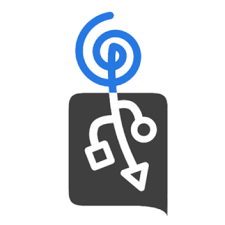
Website Ummeed Child Development Centre
Chief Operating Officer (COO)
Leadership role in a reputed non-profit that is bringing about a paradigm shift in possibilities for, and attitudes towards, children with disabilities in India
CONTEXT
Shivam was about 3 years old when his mother Mrs. Jadhav, started feeling concerned that he spoke very little and did not interact too much with people. She spoke to her pediatrician who advised that Shivam must undergo speech therapy. In spite of 4-5 months of therapy, Shivam did not make much progress.
Jigar, who lives with his family in a village in Kalol, Gujarat, could not walk or talk at the age of 2 years. His parents struggled to manage his temper tantrums and self-biting. At home, he lay on his mat all day, not responding when they tried to talk to him or play. Although Jigar’s mother had travelled for many hours to visit multiple doctors, none of them could improve the situation or even explain what was wrong with Jigar.
Shivam and Jigar’s stories are not unique. There are over 50 million children with or at risk of disabilities in India, and support/ services for them are largely non-existent. Few in the general population – including many doctors, therapists, and teachers –understand conditions such as autism, learning disabilities, and language delays. Thus, children like Shivam and Jigar fall through the cracks all the time. In school, they are likely to be misunderstood, punished, bullied, and in the community, they don’t get access to fun and leisure the way typical children do.
Childhood disability is a complex issue that, cuts across multiple dimensions of family and society including healthcare systems, education, community life and policy. Data shows that when children with disabilities are included, the entire society benefits. Unfortunately, there isn’t just one system that needs to be fixed, but many.
POSSIBILITIES
Shivam’s mother heard about Ummeed from a friend, and brought him in for an assessment. She learned from the Developmental Paediatrician at Ummeed that Shivam has Autism, which is why he struggles with communication and socialization. Over 24 sessions with Ummeed’s Autism Intervention Team, Shivam has started speaking with his mother and playing with children in his building. In the corridor at Ummeed, he confidently gives high-fives to all Ummeed staff members. An Occupational Therapist is helping him become more independent in his daily routine, while the Social Work team is helping his mother identify schools and other services in her neighborhood.
In Jigar’s case, where doctors failed, Manisha a Child Development Aide trained at Ummeed stepped in. Manisha works in the community where Jigar and his family stay. Slowly and steadily, she has built trust with Jigar’s mother and the family, and has worked on stimulating his development by talking and playing with him during regular visits to his home. Now, Jigar is able to stand and walk. He attends the local anganwadi and is included in the games the pre-schoolers play there. When Manisha visits, he runs out to greet her. For other children in the community, Manisha has started an “early intervention center” with support and guidance from the Ummeed team.
ABOUT UMMEED
Ummeed Child Development Center was founded in 2001 by Dr. Vibha Krishnamurthy, a developmental pediatrician, an Ashoka Fellow, and resource person to government and international organizations such as the World Health Organization (WHO).
Ummeed’s vision is to help children with and at risk of developmental disabilities reach their full potential and be included in society. Over the last 21 years, Ummeed has provided direct services to over 11,500 children like Shivam, trained over 6000 professionals (community workers such as Manisha, as well as doctors, therapists, and teachers), and indirectly reached out to over 3,00,000 children such as Jigar.
Over the next 3-5 years, Ummeed is looking to bring about a paradigm shift in how children such as Shivam andJigar are responded to. To do this, Ummeed will grow its existing services (direct services as well as training and capacity building), create greater awareness, build local networks of like-minded individuals and organizations, and actively partner with families in designing these solutions. This may include setting up a huge center dedicated to child development and disabilities (none such exists anywhere in India today). Ummeed currently has 120 professionals
THE ROLE OF CHIEF OPERATING OFFICER (COO)
To enable this mission, Ummeed is looking to fill some key positions. One of these is that of Chief Operating Officer (COO). We are looking for a successful mid-career (12-15 years of experience) professional, MBA from a reputed management school or with similar strong qualifications, with experience of managing operations of more than one department for the last few years in a well-run organization. The person should be passionate about working in the social sector and creating impact at scale and across multiple dimensions.
Some base expectations from this role:
• Lead and motivate key support functions such as HR, fundraising and donor relations, finance, admin, IT (with core expertise in a couple of these areas, and general competence to lead the rest of the functions)
• Systematically enhance operations (processes, people, documentation)
• Work in close collaboration with the CEO and Ummeed’s senior team to deliver current services and enable future growth, in alignment with Ummeed’s culture
• Mentor and grow the mid-level leaders under them
• Liaise with external stakeholders such as donors, auditors, partners, others towards further building Ummeed’s credibility and influence
In addition to these core responsibilities, as part of the leadership team there will be involvement in developing the strategy of the organization. There will also be prospect to get involved in different aspects of the work Ummeed is doing.
WHY UMMEED?
Ummeed is unique in the social sector, not just because of the influence it has been able to create, but also because of its work culture and ethos, that includes:
• A challenging but flexible work environment that offers opportunities for growth and creating impact at scale
• A leadership that invests in its people, giving them the freedom to explore, innovate, learn, while responsibly delivering on committed outcomes
• A strong culture of respecting diversity, being inclusive and committed to serving children with disabilities and their families
• An opportunity to work in collaboration with a diverse group of highly passionate, motivated and talented individuals
If you are excited by the idea of enabling an organization that works in a niche area to create meaningful impact, please apply
To apply for this job please visit ucdc.keka.com.





